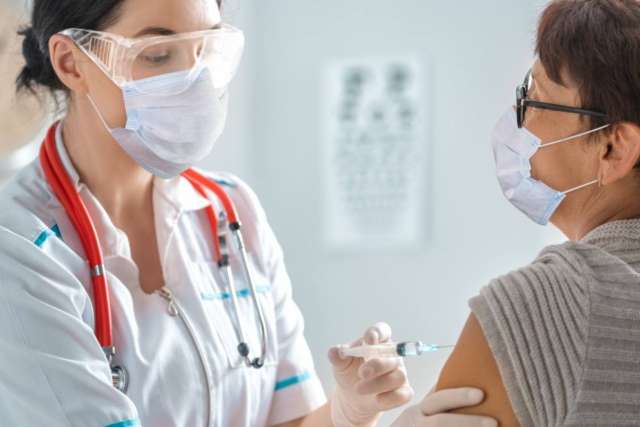Hello, dear readers, and welcome to the bonus letters column that we promised several weeks ago. With a bonanza of mail, these extra letters columns help us keep up with your comments and follow-up questions. We’ve received a lot of virus and vaccine questions, so let’s dive in.
-- The recommendations regarding booster shots continue to evolve, which has led to a bit of confusion. This includes a reader who received the Johnson & Johnson vaccine and a J&J booster. “I understand that you can get an mRNA booster after the J&J shot,” he wrote. “But I haven’t seen anything as to when you can safely get an mRNA booster after receiving two J&J shots. Any guidance would be appreciated.” It is suggested that individuals who received the J&J shot-plus-booster series follow up with either the Pfizer or Moderna boosters four months after their last shot. Since this is a suggestion and not a formal recommendation at this point in time, it’s a good idea to discuss a second booster dose with your health care provider.
-- Another aspect of the COVID-19 landscape that has continued to shift is FDA approval of the vaccines. In a recent column, we mentioned that the Pfizer vaccine has received Food and Drug Administration approval. This led a reader to say he has read otherwise. “Although the vaccine was fully approved, research I have done indicates that version is not in use in the United States, but only in other parts of the world,” he wrote. “Is this correct?” The answer is no, this is not correct. There is only one version of the vaccine, and it is in use throughout the world. We suspect the confusion arises because the vaccine is offered under different brand names outside of the U.S. Despite that, all brand names of Pfizer’s COVID-19 vaccine are biologically and chemically the same.

-- We get a lot of mail regarding antibodies, which are produced as part of the body’s immune response to infection and following vaccination. A reader from Oklahoma had a question on the topic. “I had COVID-19 in December 2020, prior to the availability of vaccines. I later got the Moderna vaccine (both shots), and I got my booster shot in October,” she wrote. “I donated blood three or four times, and each time, my test result for antibodies was negative. Should I be concerned?” No, there is no need for concern. In terms of COVID-19 infection, data shows that up to 40% of people test negative for antibodies. And when it comes to the COVID-19 vaccines and boosters, a negative antibody test does not mean you are unprotected. The protective mechanisms of the vaccines are complex, and efficacy does not rely solely on antibody detection.
Thank you to everyone who has taken the time to write to us. We read each of your letters and respond to as many as we can. A quick reminder that we cannot provide a diagnosis, offer a second opinion or comment on medications. Please stay safe, and continue to take precautions against COVID-19.
To learn more about the vaccines and for the latest information visit UCLA Health's COVID-19 Vaccine Info Hub.
(Send your questions to [email protected], or write: Ask the Doctors, c/o UCLA Health Sciences Media Relations, 10960 Wilshire Blvd., Suite 1955, Los Angeles, CA, 90024. Owing to the volume of mail, personal replies cannot be provided.)





